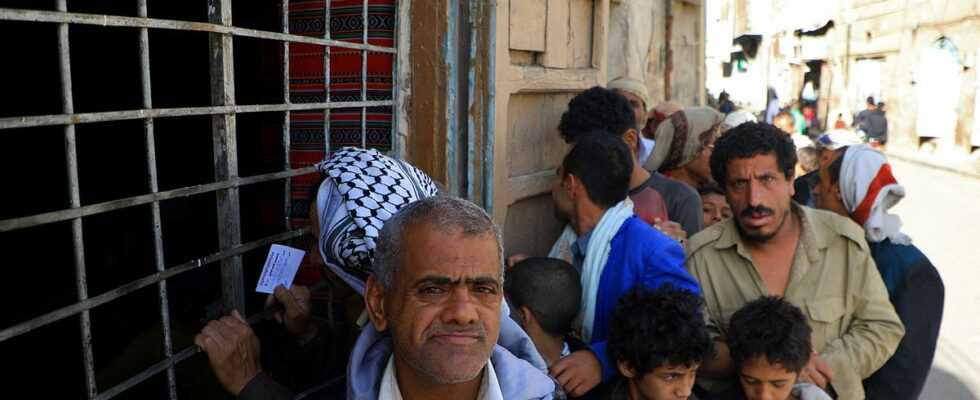Government and rebels in Yemen accused each other on Tuesday of violating the ceasefire agreement, three days after a two-month truce took effect in a country ravaged by more than seven years of a devastating war.
Read alsoIn Yemen, a fragile truce before Ramadan
The conflict has pitted forces loyal to the government since 2014, supported since 2015 by a military coalition led by neighboring Saudi Arabia, against the Houthis, rebels supported by Iran, which denies supplying them with weapons. The truce wrested by the United Nations came into force on Saturday – the first day of Ramadan, the month of Muslim fasting – offering a glimmer of hope in a war that has caused one of the world’s most serious humanitarian crises. Yemeni Foreign Minister Ahmed bin Mubarak accused the Houthis of “violationsof the ceasefire.
“The truce has been widely welcomed, but is threatened by Houthi violations, including military deployments, mobilizations of troops and vehicles, artillery fire and drone attacks“, he tweeted in English without further details. The rebels did not react directly to the allegations but their media reported “violationsof the truce from pro-government troops on Sunday and Monday.
“Hinge Moment”
U.S. Special Envoy for Yemen Tim Lenderking told Bloomberg TV on Monday that each of the warring parties was committed and flexible in favor of the truce, even without getting “completely what she wanted“. “I believe this is a pivotal moment for Yemen, and it gives Yemenis respite after seven years of war“, he added. Under this new truce, which can be renewed “with consentof the belligerents, all military air, land and sea offensives must cease, in this conflict which has claimed hundreds of thousands of lives, according to the UN, and pushed this poor country on the Arabian Peninsula to the brink of famine. In addition, it allows the entry of 18 oil tankers in the ports of the strategic region of Hodeida (West) and the access of two commercial flights to the airport of the capital Sanaa.
Read alsoYemen: “The independence of the South remains our strategic objective”
The coalition controls Yemen’s air and sea space and only UN flights are allowed to land in Sanaa, a “blockadedenounced by the Houthis. Sanaa and the ports of Hodeida are in the hands of the Houthis. Ports are essential for the delivery of humanitarian aid. The truce announcement came as talks on Yemen were being held in Saudi Arabia, in the absence of the rebels, who said they refused to participate in talks in the territory “enemy“.
Call to negotiate
Yemeni President Abd Rabbo Mansour Hadi called on the Houthis to return to the negotiating table. “Come back as a political group, within the republic, in unity and democracy, and make peace for our people“, he said in remarks made during an iftar (evening meal during the Ramadan fast) bringing together Yemeni officials in the Saudi capital Riyadh. But among the population, some are skeptical, previous ceasefires having not held. “If this truce holds, and there is goodwill from everyone, I think things will be better and security will be back in the country.“Said Houssam Fathi, a 24-year-old resident of the capital Sanaa.
“Come back as a political group, within the republic, in unity and democracy, and make peace for our people”
Abd Rabbo Mansour Hadi, Yemeni President.
Read alsoThe keys to understanding eight years of civil war in Yemen
A previous nationwide truce in 2016 fizzled. Another announced in 2018 to end hostilities around the port of Hodeidah has also been largely ignored. In Hodeida, Abdelaziz says he struggles to make a living as a delivery boy due to inflation. “I buy fuel on the black market at very high prices“says this 45-year-old man for whom”this truce seems impossible.»
SEE ALSO – Yemeni rebels claim series of attacks in Saudi Arabia’s Jeddah
